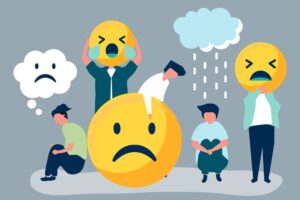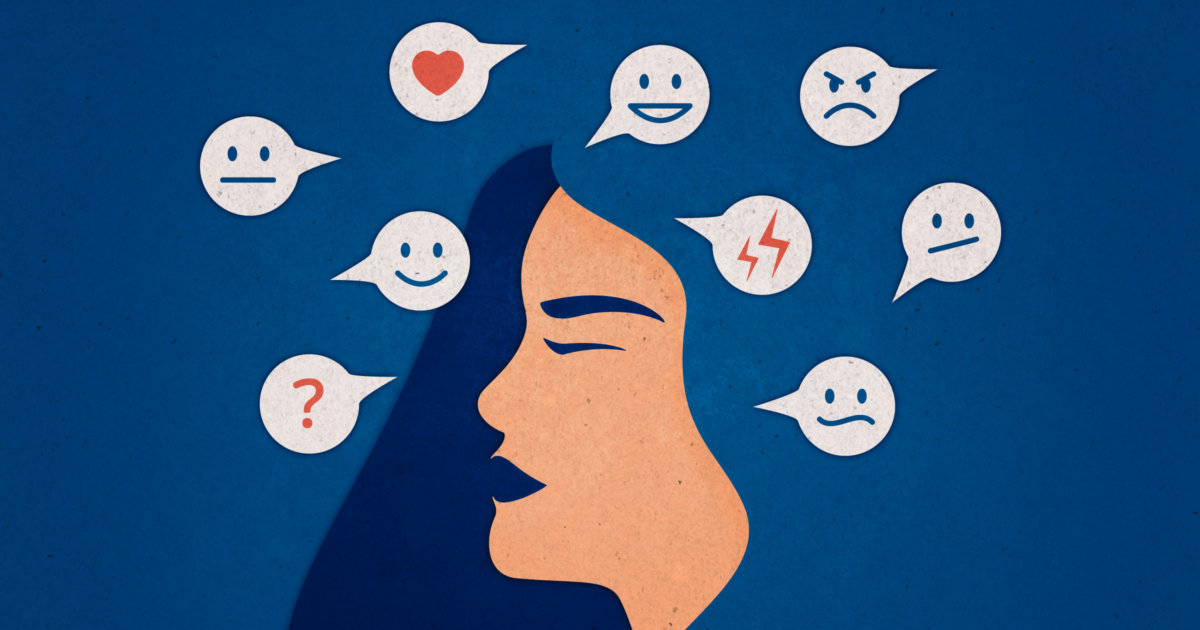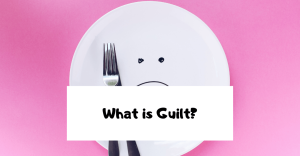Do you ever feel like you’re stuck in a rut? That every step you take feels like it’s leading you down a dark path, no matter how hard you try to steer clear of trouble? If so, then you might be dealing with some of the following negative feelings: despair, hopelessness, boredom, and loneliness. But don’t worry – there are ways to work through them! In this article, we’ll discuss different ways to deal with each of the negative emotions on the negative feelings list, and hopefully, help you find some relief.
Contents
What Are Negative Feelings?

Negative feelings are unpleasant and unwanted thoughts, feelings, and emotions that make you feel negative about yourself. They can range from mild annoyance to intense anger and depression. They can make you feel stressed, sad, scared, or lonely.
Negative feelings are usually linked to some event or situation in your life. Sometimes they’re just a natural reaction to difficult times, while other times they’re a result of something that you’ve done or said.
List of Negative Feelings

Negative feelings are any feelings that make you feel bad. They might make you feel angry, frustrated, sad, or scared. There are several negative feelings that people can experience. Some of the most common negative feelings are listed below.
Annoyance
Annoyance is a feeling of irritation, discomfort, or annoyance with something. It can be caused by something small, like a noisy neighbor, or something big, like being stuck in traffic. Annoyance can make you feel angry and stressed.
The following are examples of things that can annoy:
-People who constantly talk in your ear
-People who are always late
-Strangers who touch you without asking
– Loud noises
– Smells that bother you as the smell
Frustration
Frustration is a feeling that results from being unable to fulfill a desire or achieve an objective. It can be caused by several factors, such as unexpected obstacles, limitations on resources, or the inability to communicate with others.
Frustration can lead to anger and aggression, as well as feelings of helplessness and despair. It can also cause people to withdraw from social activities and relationships, and to develop physical symptoms such as headaches or stomachaches.
There are several ways to address frustration, including finding ways to work around the obstacles or working on resolving the underlying causes. Additionally, people can try to relax and take short breaks throughout the day to relieve the pressure.
Anger

Anger is a powerful emotion that can be directed in many different ways. It can be used as a tool to motivate ourselves, or it can fuel destructive behavior. Here are five common ways that anger can be negative:
1. Anger can lead to violence.
2. Anger can lead to emotional outbursts that hurt others.
3. Anger can make it difficult to think clearly or make decisions.
4. Anger can prevent us from taking appropriate action when confronted with a problem.
5. Anger can keep us stuck in negative thoughts and feelings, which can have long-term consequences.
Sadness
Sadness is a feeling of intense grief, regret, or sadness. Furthermore, Sadness can be caused by a wide variety of events or situations but is often accompanied by feelings of loneliness, emptiness, and despair. The intensity of sadness may fluctuate over time and can vary depending on the person experiencing it.
The sadness may be caused by the loss of a loved one, experiencing a difficult event such as a personal injury, or the fear of a looming disaster. Sadness may also be caused by disappointments in life, such as when someone fails to meet their expectations.
Disgust
The feeling of disgust can be brought on by several different things. Some people might feel disgusted when they see something unclean or crawling with bugs. Others may feel disgusted when they smell something bad. Still, others might feel disgusted when they think about something disgusting, like body parts.
This negative feeling can be greatly affected by personal beliefs, so it’s important to be aware of what disgusts you and why. Understanding your feelings can help you better manage them and prevent them from influencing your interactions with others.
Fear

Fear is another feeling that can be experienced when a person is in danger. The fear may be of the actual danger, or it may be of the potential consequences of the danger.
Many times, fear is a natural reaction to danger. It helps us escape or defend ourselves. But too much fear can be debilitating, leading to anxiety, panic attacks, and other mental health conditions.
The fear of dangers that we cannot control can be especially debilitating. This is the type of fear that often leads to post-traumatic stress disorder (PTSD). PTSD is a condition that results from exposure to a traumatic event, such as being in combat or experiencing a serious car accident.
People with PTSD often have recurring fears and nightmares about the event. They may also have difficulty sleeping and concentrating.
Shame
Shame is a feeling that is often associated with being embarrassed, humiliated, or upset. Furthermore, Shame can make people feel bad about themselves, and can lead to feelings of self-consciousness, guilt, and regret.
Shame can come from anything that makes someone feel embarrassed or ashamed. It can be caused by things like making a mistake in front of others, not meeting someone’s expectations, or being sexually explicit in public. The way that shame feels can vary depending on the person. Some people might feel uncomfortable and ashamed in silence, while others might become extremely angry or confrontational.
There are many ways to deal with shame. One thing that people often do is try to avoid thinking about or dealing with the shame issue. This often results in it becoming more intense over time. Alternatively, some people try to face their shame head-on and work through it. This can involve talking to trusted friends or family members about what’s been going on, writing down everything that’s been happening to them, or doing something that makes them feel good (like going for a walk).
Guilt

Guilt is a negative emotion that stems from feeling responsible for something bad that has happened. Furthermore, It can cause a person to feel regret, guilt, and sadness. Guilt can make it difficult to concentrate, eat, or sleep.
Guilt may be caused by things a person has done, or by things they have not done. It can be a reaction to events that have already happened, or to thoughts about possible future events. People who are frequently guilty often feel a lot of pressure to try and make up for their mistakes. This can lead to unhealthy patterns of behavior, such as drinking or gambling.
Regret
Regret is the most common negative feeling. It’s a feeling of sadness, regret, or guilt that comes after making a decision or taking an action with negative consequences. Regret can be triggered by anything from poor choices to accidents.
Regret is often accompanied by feelings of self-pity and a desire to change what happened, or undo the past. It can make it difficult to move on and achieve goals in the future. Some people even develop depression or anxiety as a result of chronic regret.
There are many ways to manage regret, both in the present and in the future. One important step is recognizing when it’s happening and seeking out help. There are also things you can do to reduce its impact, including reaching out to friends and family, practicing meditation or mindfulness, and writing down your regrets.
Jealousy

Another negative feeling is jealousy which can be caused by envy or a sense of insecurity. Jealousy often stems from the belief that someone else has something that we want or feel we deserve. When jealousy begins to interfere with our ability to function, it can lead to feelings of hurt, anger, and resentment.
Sometimes this jealousy can be all when we feel a sense of insecurity about our relationship with another person. So if we feel like our partner is spending too much time with someone else, for example, we might experience jealousy. This can lead to the belief that our partner doesn’t care about us and can cause a lot of hurts.
Conclusion
Negative feelings can be a tough thing to deal with, but by understanding them and acknowledging them, we can work to overcome them. Furthermore, By knowing what triggers these negative emotions and understanding how we can best manage them, we can move forward in our lives with a greater sense of peace and stability. Thank you for reading.
Hope this article was of help to you! If you are suffering from mental health disorders, you may seek help from Therapy Mantra. We have a team of highly trained and experienced therapists who can provide you with the tools and skills necessary for overcoming mental health disorders. Contact us today to schedule an online therapy or download our free Android or iOS app for more information.


